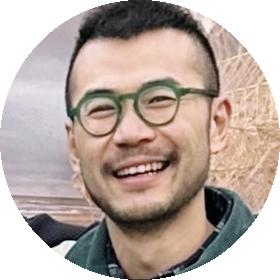
Past and Present
Traditionally, poetry was the foremost genre of literature in China, boasting names such as Li Bai and Bai Juyi of the Tang dynasty. It gradually ceded its status to the novel in the twentieth century, under the influence of developments in Western literature.
In contemporary Chinese poetry, the post-Mao period saw the emergence of the illustrious Misty Poets, so-called because of their ‘misty’ or ‘obscure’ use of imagery. The works of Duoduo, Bei Dao and Yang Lian represented a major break with the trend of socialist realism that had prevailed in the preceding decades.
From the mid-eighties onward, this first generation of new poets was challenged by ‘vernacular’ poets such as Han Dong and Yu Jian, who reacted to the often highfalutin symbolism and idealism of the Misty Poets by a sober return to language per se.
During the 1990s, Yu Jian and others opposed themselves to the more ‘cerebral’ poets Wang Jiaxin and Xi Chuan, leading to vehement debates on folk tradition versus intellectualism, which to a certain extent was also a debate on ‘Chineseness’ versus Western influence.
The twenty-first century saw the rise of young poets who are closely related to the internet, which functions as an alternative underground circuit for the increasingly marginalized position of poetry in Chinese society. Nevertheless, social engagement can still be called one of poetry’s main defining features, as can be judged from the stark reflections of society’s underbelly by the Lower Body poets or the political fervor of multimedia performer Yan Jun, who combines poetry recitals with electronic soundscapes and video projections.
Chinese poetry, both classical and modern, has been amply translated into Dutch, spread over numerous journal and anthology publications. In addition, contemporary Chinese poets are frequent visitors of the Poetry International Festival of Rotterdam.
Notes
- Three comprehensive anthologies of classical poetry exist in Dutch: Spiegel van de klassieke Chinese poëzie (by W.L. Idema, Meulenhoff, 1991, various reprints), Chinese stemmen (by D. Bronkhorst, De Geus, 2009), and Berg en water (by S. Marijnissen, Arbeiderspers, 2013)
- As for modern poetry: Duoduo and Bei Dao have been published by Meulenhoff, and Yu Jian by Poëziecentrum and Het Trage Vuur. Translated poets from Taiwan are Chen Li (Het Trage Vuur), Shang Qin and Xia Yu (both Voetnoot). Other poets have no individual poetry collections in Dutch, only magazine and online publications.

